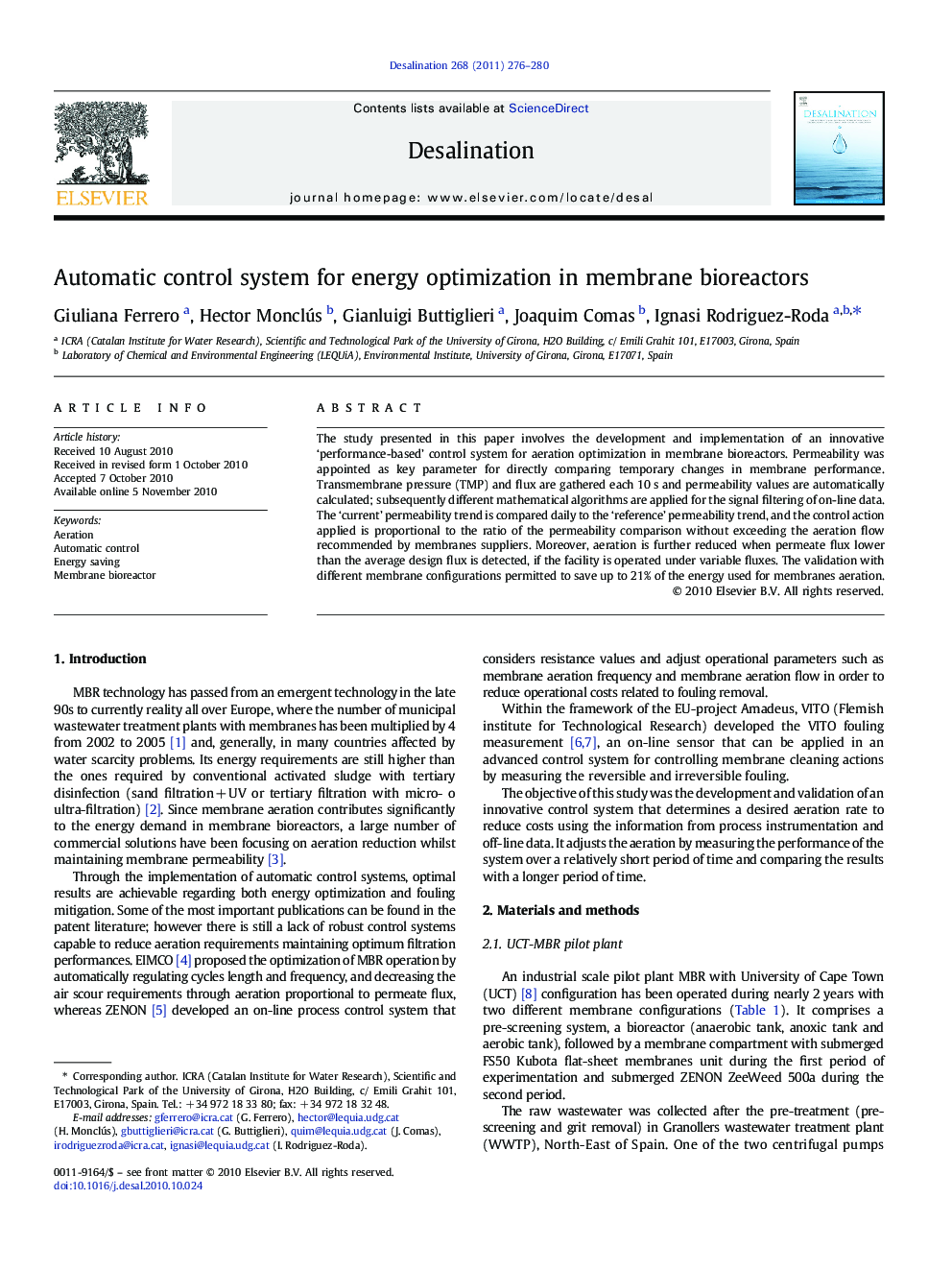| Article ID | Journal | Published Year | Pages | File Type |
|---|---|---|---|---|
| 625497 | Desalination | 2011 | 5 Pages |
The study presented in this paper involves the development and implementation of an innovative ‘performance-based’ control system for aeration optimization in membrane bioreactors. Permeability was appointed as key parameter for directly comparing temporary changes in membrane performance. Transmembrane pressure (TMP) and flux are gathered each 10 s and permeability values are automatically calculated; subsequently different mathematical algorithms are applied for the signal filtering of on-line data. The ‘current’ permeability trend is compared daily to the ‘reference’ permeability trend, and the control action applied is proportional to the ratio of the permeability comparison without exceeding the aeration flow recommended by membranes suppliers. Moreover, aeration is further reduced when permeate flux lower than the average design flux is detected, if the facility is operated under variable fluxes. The validation with different membrane configurations permitted to save up to 21% of the energy used for membranes aeration.
Research highlights►Important tool capable to optimize membranes performance. ►Automatic control system saves up to 21% of aeration necessary for membranes scouring. ►Control system validated at pilot scale with different membrane configurations. ►No interference on membranes fouling and biological nutrient removal.
